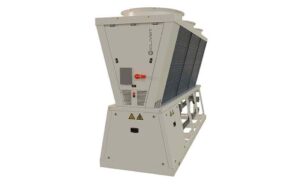Polymer film could offer alternative to metal heat exchangers
1st May 2019
USA: Engineers at Massachusetts Institute of Technology (MIT) are said to have fabricated highly conductive thin polymer films that could be used to manufacture lightweight and efficient heat exchangers.
Polymers are best known for thermal insulation, such as silicone oven gloves, or Styrofoam coffee cups. Now MIT engineers claim to have flipped the picture of the standard polymer insulator, by fabricating thin polymer films that conduct heat — an ability normally associated with metals.
In experiments, they found the films, which are thinner than plastic wrap, conduct heat better than ceramics and many metals, including steel.
The team’s results, published in the journal Nature Communications, could spur the development of polymers as lightweight, flexible, and corrosion-resistant alternatives to traditional metal heat conductors, for applications ranging from heat dissipating materials in laptops and cellphones, to cooling elements in cars and refrigerators.
“Our bigger vision is, these properties of polymers can create new applications and perhaps new industries, and may replace metals as heat exchangers,” commented Gang Chen, the Carl Richard Soderberg professor of power engineering at MIT, and a senior co-author on the paper.
In 2010, the team managed to fabricate thin fibres of polyethylene that were about as conductive as most metals. The results are said to have drawn the attention of various industries, including manufacturers of heat exchangers, computer core processors, and even race cars.
It soon became clear that, in order for polymer conductors to work for any of these applications, the materials would have to be scaled up from ultra-thin fibres (a single fibre measured one-hundredth of the diameter of a human hair) to more manageable films.
While most polymers conduct heat at around 0.1 to 0.5W/mK, the new polyethylene film measured around 60W/mK. This is 100x more thermally conductive than most polymers, and also more conductive than steel and ceramics.







